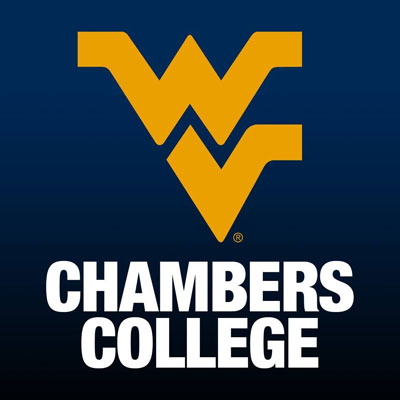Ideas from West Virginia University’s Master's of Science in Industrial Relations (MSIR) students are helping to fuel the manufacturing industry of tomorrow.
This summer, Toyota Motor Manufacturing West Virginia will hire three new group leaders as part of its Leadership Development Program, a concept that was first developed by students of the Talent Acquisition course within the John Chambers College of Business and Economics program.
“We introduced the students to the Toyota Way of thinking and problem solving, and they used this training/coaching to improve and eliminate some of our plant struggles,” said Matthew Oliver, manager of Human Resources for Toyota.
For four years, the MSIR program has worked closely with Toyota Motor Manufacturing West Virginia to give students real-world experience of the challenges and issues that industries face.
"Toyota was curious to see if there were ways that we could develop any kind of partnerships, if WVU could lend its expertise in any way and what that might look like,” said MSIR Program Coordinator Thomas Zeni. “To me, that’s really what experiential learning is all about.”
The Leadership Development Program came as a concept idea last year and was implemented at the Toyota facility in September.
“The current layout of the program is to hire the students full-time as a production group leader or salary supervisor,” Oliver said. “They attend our 10-week group leader school and dive deeper into Toyota’s core training requirements and thinking. After they graduate from GL School, they begin their four rotations over a two-year time frame covering all aspects of the business from production, logistics, quality and administrative roles within the plant.”
Once the rotation is complete, those hires are then placed in a home department. There are several checkpoints throughout the LDP program confirming the technical, managerial and leadership development of the LDP group leader.
“We're generating this buzz with students about Toyota and out of the box thinking, letting them accomplish a project that we actually implemented,” said Michael Smith, analyst of talent development for Toyota West Virginia. “For example, the Leadership Development Program, and I'll be sharing it as a best practice for all Toyotas for shortly. It's just a win-win situation for both the students and for us.”
This semester, students are looking at issues with vendor management, human resources and diversity and inclusion in their Strategic Management in Human Resources course.
“The real-world situations that there'll be exposed to in class and then real-world situations they'll be exposed to when they land in their full-time job,” Smith said.
While Toyota has approximately 340,000 great minds working across the globe, these students bring valuable talents and a fresh perspective to the table.
“You're getting somebody that's a fresh set of eyes looking at the problem, somebody from the outside looking in, and they get you a fresh perspective,” Oliver said. “I think that's the biggest advantage. We want to be able to recruit top talent. That's hard to do if you're not getting that perspective.”
It also plays into Toyota’s mission to invest into community involvement and development, Smith said.
“It's an opportunity for us to reach out, understand what other companies are doing and we also get to hear from the folks we want to bring into the plant,” he said. “Right off the bat, they start thinking that way, and I just think it's a good partnership."
Regardless of whether a student goes on to work for Toyota or some other company, the experience from this course is invaluable.
“Once they go into any organization, they're going to have to learn that organization's way of doing things, whether it's Toyota or anybody else,” Zeni said. “Every organization has its own way of working, so it gives them the opportunity to see it and to understand that it’s not just about coming up with ideas; it's how do we work within the framework we're given because every company is going to have its own framework.”
-WVU-
bm/03/11/20
CONTACT: Brittany Murray
Senior Writer, Office of Strategic Communications
John Chambers College of Business and Economics
(304) 293-5927; brittany.murray@mail.wvu.edu
Call 1-855-WVU-NEWS for the latest West Virginia University news and information from WVUToday.
Follow @WVUToday on Twitter.

